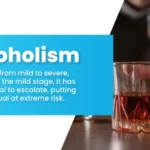
Partial Hospitalization Programs: Tennessee PHP Programs
In recent years, the discourse surrounding mental health and substance use disorder (SUD) has gained significant traction nationwide, reflecting a critical realization of the extensive impact these issues have on individual lives and broader communities. The implementation and promotion of Tennessee PHP Programs (Partial Hospitalization Programs) for mental health and SUD present a vital opportunity to address these pressing concerns. The advocacy for such programs should be multifaceted, encompassing a spectrum of dimensions, such as accessibility, efficacy, and community involvement.
What Are Tennessee PHP Programs?
Tennessee PHP Programs are structured, intensive, outpatient services that offer comprehensive therapeutic interventions for individuals battling mental health issues and SUD. These programs occupy a significant niche in the continuum of care, serving as a bridge between inpatient treatment and independent living. Unlike traditional inpatient facilities, PHPs allow individuals to receive high-quality care while maintaining a degree of independence, ultimately propelling them toward recovery with dignity and support. For Tennessee, a state grappling with an opioid epidemic and a rising incidence of mental health concerns, expanding access to PHPs is paramount.
Efficacy of Partial Programs
The efficacy of Tennessee PHP programs is another cornerstone of advocacy. Research indicates that PHPs can produce positive outcomes for individuals with both mental health disorders and SUD. Studies show that participants in PHPs often experience reductions in depressive symptoms, improved functioning, and enhanced engagement with daily activities. Moreover, they provide a structured environment where patients can develop coping skills, engage in therapy, and receive peer support—elements crucial for long-term recovery. By immersing individuals in therapeutic interventions during crucial periods of vulnerability, PHPs offer a proactive approach to healing, making them a compelling alternative to other forms of treatment.
Accessibility Challenges
One of the primary arguments for advocating PHP programs in Tennessee revolves around accessibility. Current statistics illustrate a concerning trend: a significant portion of the population faces barriers to obtaining mental health and substance use treatment. Factors such as socioeconomic status, geographic location, and stigma often conspire to limit access to essential services. However, PHPs have the potential to mitigate these barriers through flexible scheduling and reduced transportation obstacles. Programs strategically located within communities can provide individuals with the support they need without the burdens associated with long-term hospitalization, offering a more viable path to recovery for many.
Community Integration
Importantly, the integration of Tennessee PHP programs with community resources can bolster their effectiveness. Collaborative efforts between these programs and local organizations—such as educational institutions, health care providers, and community coalitions—can create a robust support network for individuals seeking recovery. Integrated care models that encompass medical and psychological support, alongside social services, enhance the likelihood of achieving positive outcomes. Advocating for partnerships with local agencies and stakeholders can ensure that PHPs in Tennessee do not operate in isolation but instead form a comprehensive framework for addressing SUD and mental health challenges.
Advocacy, Stigma and Funding for Tennesse PHP Programs
Additionally, advocacy endeavors must directly address the stigma surrounding mental health and substance use disorders. The complexities associated with these issues often lead to societal bias, which can deter individuals from seeking the help they need. By promoting the significance of Tennessee PHP programs through educational campaigns and community discussions, advocates can help normalize the conversation surrounding mental illness and SUD. Raising awareness about the availability and efficacy of PHPs can encourage individuals to consider these programs as valid and effective routes to recovery, thereby supporting destigmatization efforts.
Furthermore, funding and policy support from the state government are critical to the successful expansion and sustainability of PHPs. State-level funding initiatives that prioritize mental health and substance use treatment can facilitate the establishment of new programs and the enhancement of existing ones. Additionally, advocating for policy changes that promote insurance coverage for PHP services ensures that financial barriers do not impede individuals seeking treatment.
An In-Depth Exploration of Tennessee PHP Programs
Recently, the importance of comprehensive mental health care has gained greater recognition, primarily due to increasing rates of mental health disorders and substance use disorders (SUD) across the United States. Tennessee PHP programs have emerged as an effective treatment modality for individuals experiencing severe depression, anxiety, psychosis, and substance abuse challenges. The following aims to provide an in-depth exploration of Tennessee’s partial hospitalization programs, elucidating their purpose, structure, benefits, and the vital role they play in the continuum of mental health and addiction treatment.
Defining Tennessee PHP Programs
Tennessee PHP programs are structured outpatient treatment options designed for individuals who require more intensive support than traditional outpatient services but do not necessitate around-the-clock care in a residential setting. PHPs typically involve a multi-disciplinary team of mental health professionals, including psychiatrists, psychologists, licensed clinical social workers, and nursing staff, who collaborate to create a personalized treatment plan addressing each patient’s unique needs.
Tennessee PHP programs are tailored to serve individuals grappling with severe mental health issues and substance use disorders. These programs provide a therapeutic environment while allowing patients to return home each evening, thus enabling them to maintain a degree of independence while still engaging in structured treatment.
Structure and Components of Tennessee PHP Programs
The structure of a partial hospitalization program in Tennessee usually involves daily treatment sessions, which may extend from three to five days a week for a set number of hours each day, typically lasting between four to eight hours. Treatment modalities include individual therapy, group therapy, family counseling, medication management, and psychoeducation.
Group therapy, in particular, holds significant importance as it not only facilitates peer support but also encourages the development of essential coping skills through shared experiences. Individual therapy sessions allow for personalized attention, where patients can explore their specific challenges, emotions, and progress with their treatment goals.
In addition to therapeutic sessions, some PHPs incorporate recreational therapy, art therapy, and mindfulness practices, all of which serve to enhance the overall treatment experience. The comprehensive nature of a PHP addresses not just the symptoms of mental health disorders or SUD but also promotes the development of life skills that are crucial for long-term recovery.
Benefits of Partial Hospitalization Programs
Tennessee PHP programs offer numerous benefits, marking them as a vital component of mental health and substance use recovery. One of the most significant advantages is the high level of support provided in a safe and therapeutic environment. For individuals struggling with debilitating symptoms, PHPs serve as a bridge between inpatient care and outpatient treatment, reducing the risk of relapse while ensuring that patients receive necessary interventions.
The program’s flexible structure allows patients to practice the skills they learn in therapy while still engaging with their families, communities, and workplaces. This exposure to real-life situations can help patients apply therapeutic principles in a practical environment, significantly enhancing their coping strategies as they transition back into daily life.
Furthermore, PHPs often provide greater accessibility to care compared to inpatient facilities. Long waiting lists and insurance limitations can especially hinder timely access to treatment, making PHPs a critical resource for those requiring immediate assistance.
Challenges and Considerations
Despite their merits, partial hospitalization programs are not without challenges. Successful participation in a PHP relies heavily on a patient’s motivation and commitment to the treatment process. Those who may struggle with compliance or have concurrent disorders may find it challenging to fully benefit from the structured nature of these programs.
Additionally, prospective patients need to assess their home environments carefully. A supportive home setting is pivotal for the efficacy of PHPs, as patients will return home after daily sessions to integrate their learning and coping strategies. For individuals lacking support, PHPs may not serve as an appropriate treatment option.
A Critical Step in the Recovery Process
Tennessee PHP programs represent a critical step in the continuum of care for individuals battling severe mental health disorders and substance use disorders. By offering structured, intensive treatment within a supportive environment, PHPs empower patients to progress towards recovery while maintaining essential connections to their families and communities. The importance of such programs cannot be overstated as they not only facilitate healing but also equip individuals with the tools necessary for sustained mental wellness and social reintegration. As mental health awareness continues to evolve, the relevance of partial hospitalization programs will likely remain significant, serving as a beacon of hope for those on the path to recovery.
How a Tennessee PHP Program Can Effect a Positive Change in Someone Struggling with Mental Health or SUD
In recent years, mental health and substance use disorders (SUD) have become prevalent public health concerns in the United States, including in Tennessee. The state has acknowledged the critical need for comprehensive mental health care and substance abuse interventions, leading to the implementation of Tennessee PHP Programs. These programs serve as a bridge between inpatient care and outpatient services, providing robust therapeutic options for individuals grappling with mental health challenges and SUD. Going forward, we will explore how Tennessee’s PHP programs effect positive change in individuals struggling with these issues, focusing on the multidimensional therapeutic framework, the emphasis on community support, and the integration of holistic treatment modalities.
Therapeutic Framework of PHP Programs
At the core of a successful PHP is a structured therapeutic framework tailored to meet the unique needs of participants. These programs typically offer intensive psychological support five days a week, combining individual therapy, group therapy, and psychoeducation. The structured environment helps participants gain insights into their conditions and equips them with coping strategies.
Scientific studies have shown that the therapeutic alliance— the relationship between therapist and client—is a significant predictor of successful outcomes in mental health treatment. Tennessee PHP programs facilitate strong therapeutic alliances, wherein mental health professionals work closely with participants to develop individualized treatment plans. This patient-centered approach ensures that interventions are not only appropriate but also respectful of the individual’s life experiences and cultural background. The focus on strengths and resilience promotes empowerment and fosters a sense of agency in recovery, an often overlooked aspect of healing.
Community Support and Peer Connections
Another vital element of Tennessee PHP programs is their emphasis on community support. In many instances, individuals struggling with mental health issues or SUD may experience feelings of isolation and stigma, which can exacerbate their conditions. Through PHP participation, individuals are placed within a community of peers—all facing similar challenges and paths toward recovery. This shared experience can be incredibly therapeutic, allowing participants to forge connections that foster solidarity and reduce feelings of loneliness.
Support groups and group therapies are integral components of PHPs, providing participants with opportunities to share their experiences and listen to others who have faced similar adversities. This interchange not only normalizes their struggles but offers varied perspectives on coping mechanisms and recovery strategies. The development of peer relationships often leads to mutual encouragement, as individuals can witness the progress of their peers in real-time. Such interactions mitigate the stigma around mental illness and SUD, allowing individuals to realize that seeking help is a courageous step rather than a sign of weakness.
Integration of Holistic Treatment Modalities
Tennessee’s PHPs are also characterized by an increasingly holistic approach to treatment. Recognizing that mental health and SUD issues affect individuals biologically, psychologically, and socially, many programs incorporate various therapeutic modalities beyond traditional psychotherapy. These may include art therapy, music therapy, mindfulness practices, yoga, and physical fitness programs. Engagement in these activities is essential for emotional regulation, self-expression, and stress relief.
Holistic treatments have been shown to decrease symptoms of anxiety and depression, which frequently co-occur with SUD. By providing participants with numerous avenues to explore their emotions and experiences, Tennessee PHP programs foster a sense of well-being and stability. Furthermore, lifestyle changes introduced in these programs—such as improved nutrition and exercise—can enhance physical health, which is inextricably linked to mental health outcomes. This holistic perspective allows individuals to approach their recovery from multiple angles, addressing the intricate and interconnected nature of their experiences.
Recovery Potential Through Tennessee PHP Programs
Tennessee PHP programs represent a critical resource for individuals struggling with mental health and substance use disorders. Through their structured therapeutic frameworks, emphasis on community support, and incorporation of holistic treatment modalities, these programs help facilitate positive transformation. By fostering a supportive environment conducive to healing and growth, PHPs empower participants to take active roles in their recovery journeys. As mental health and SUD continue to be pressing issues in our society, the ongoing development and expansion of such programs are vital in providing comprehensive care that engenders hope and healing. Ultimately, PHPs exemplify the potential for recovery when individuals are supported and equipped with the necessary tools for managing their mental health and fostering resilience.
TRUE Addiction and Behavioral Health’s Comprehensive Tennessee PHP Program Is Positioned as the Leading Choice
Among Tennessee’s myriad mental health treatment options available, TRUE Addiction and Behavioral Health’s Partial Hospitalization Program (PHP) in Tennessee emerges as a leading choice for individuals seeking intensive and holistic care. Here we expound upon the components of TRUE Addiction and Behavioral Health’s PHP, highlighting its strengths, innovative methodologies, and its unique position within the treatment spectrum.

TRUE’s Tennessee PHP Environment
At its core, TRUE Addiction and Behavioral Health offers a structured therapeutic environment designed specifically for individuals requiring significant support yet not necessitating round-the-clock care as found in inpatient settings. The PHP model strikes a delicate balance by allowing participants to engage in intensive therapeutic activities during the day while having the flexibility to return home or to a supportive environment in the evenings. This model is particularly advantageous for those who can benefit from community interaction and familial support as part of their recovery journey.
Program Design
The design of the PHP at TRUE Addiction is predicated on comprehensive care, tailored to meet the multifaceted needs of individuals struggling with both mental health disorders and substance use challenges. Each participant undergoes a thorough assessment that encompasses psychological evaluations, medical history reviews, and personal interviews. This diagnostic phase is crucial as it informs the individualized treatment plans that are central to TRUE Addiction’s approach. By addressing the unique needs of each individual, the program ensures that treatment is not only effective but also engaging, fostering a sense of ownership and agency in the recovery process.
Modalities of Care
Therapeutic modalities employed in the Tennessee PHP Programs include evidence-based practices such as Cognitive Behavioral Therapy (CBT), Dialectical Behavior Therapy (DBT), and Trauma-Informed Care (TIC). These modalities have been shown to significantly improve treatment outcomes and participant satisfaction. By encompassing various therapeutic techniques, TRUE Addiction creates a dynamic environment conducive to healing and personal growth. Group therapy sessions are integral to the proceedings, offering participants the opportunity to share experiences, develop interpersonal skills, and build a supportive community.
The Treatment Team
Moreover, TRUE Addiction recognizes the importance of psychiatric support in managing co-occurring disorders, which are prevalent among individuals with SUD. The program is staffed with a multidisciplinary team, including licensed therapists, counselors, and psychiatrists who work collaboratively to ensure comprehensive treatment. This integrative approach enables the team to address not only the immediate symptoms of substance use but also the underlying psychiatric conditions that may contribute to addictive behaviors. Regular psychiatric evaluations ensure that medication management is optimized, addressing both safety and efficacy.
Holistic Practices
Integration of holistic practices is another standout feature of the PHP. TRUE Addiction and Behavioural Health emphasizes the significance of comprehensive wellbeing through integrative therapies such as mindfulness, yoga, and nutritional counseling. These elements are vital in fostering resilience and equipping participants with coping strategies applicable beyond the program. Such holistic practices support the premise that healing transcends mere symptom management and involves nurturing the mind, body, and spirit. This broader understanding of recovery positions TRUE Addiction as a leader in innovative treatment approaches that resonate with the needs of individuals seeking lasting change.
Family Involvement
Given the complexity of mental health and SUD, family involvement plays an essential role in recovery processes. TRUE Addiction actively engages families to bolster support systems, educate them about their loved one’s conditions, and involve them in therapy sessions when appropriate. This emphasis on a family-centered approach fosters a deeper understanding of the challenges faced, encourages communication, and supports relationship rebuilding, which is crucial for sustained recovery.
Summary of TRUE’s Tennessee PHP Programs
TRUE Addiction and Behavioral Health’s comprehensive Tennessee PHP Program emerges as a front-runner in the treatment of mental health and substance use disorder for several compelling reasons. Its individualized treatment plans, multidisciplinary team approach, integration of holistic practices, and focus on family involvement collectively create a robust support system that is conducive to recovery. As society continues to confront the staggering statistics surrounding mental health issues and substance use, programs like TRUE Addiction offer hope and tangible pathways to healing for those adversely affected. In doing so, they not only enhance individual lives but also contribute to the overarching goal of fostering healthier communities.
In Conclusion
In conclusion, the advocacy for Partial Hospitalization Programs in Tennessee represents a vital strategy to bolster mental health and SUD treatment within the state. By successfully addressing issues related to accessibility, efficacy, community integration, stigma, and funding, stakeholders can position PHPs as crucial components in Tennessee’s response to these pervasive challenges. As the state navigates the complexities of mental health and substance use, investing in and promoting these programs will be essential for creating a healthier and more resilient population, ultimately laying the groundwork for a more supportive and informed society.
If you or someone you know is struggling with substance abuse or a mental health issue, contact TRUE today to get started on the path to long-term successful recovery. TRUE is a premier provider of addiction and mental health services located in Tennessee. TRUE offers the most comprehensive menu of services for people in need of Tennessee mental health treatment and for those struggling with substance use disorder.
- Am I an Alcoholic? A Real, Honest Guide from TRUE Addiction and Behavioral Health
- Choosing the Right Treatment Center: Care for Real at TRUE
- Alcohol Rehab at TRUE Addiction and Behavioral Health: A New Standard of Care in Tennessee
- A Comprehensive Guide to Sober Homes, Halfway Houses and Recovery Houses
- Understanding Peer Support in Addiction Recovery
Verify Your Insurance Online
We are here to help. Contact us today and get the answers you need to start your journey to recovery!
/* Solid line */
hr.solid {
height: 3px;
background-color: gold;
margin: 20px 0; /* Adjust spacing */
}




